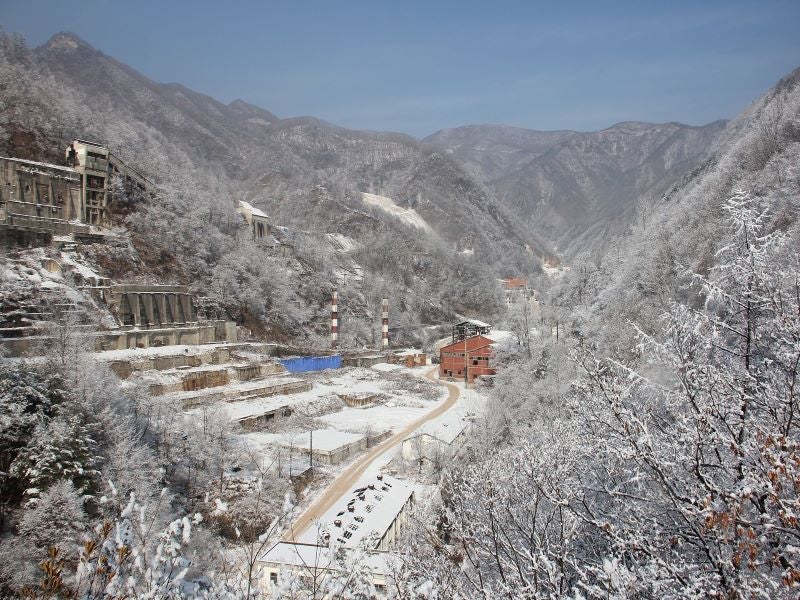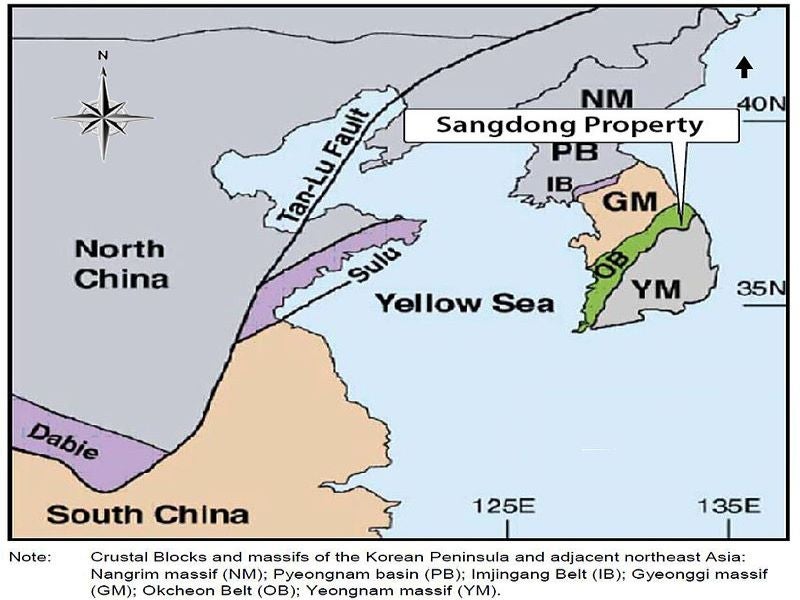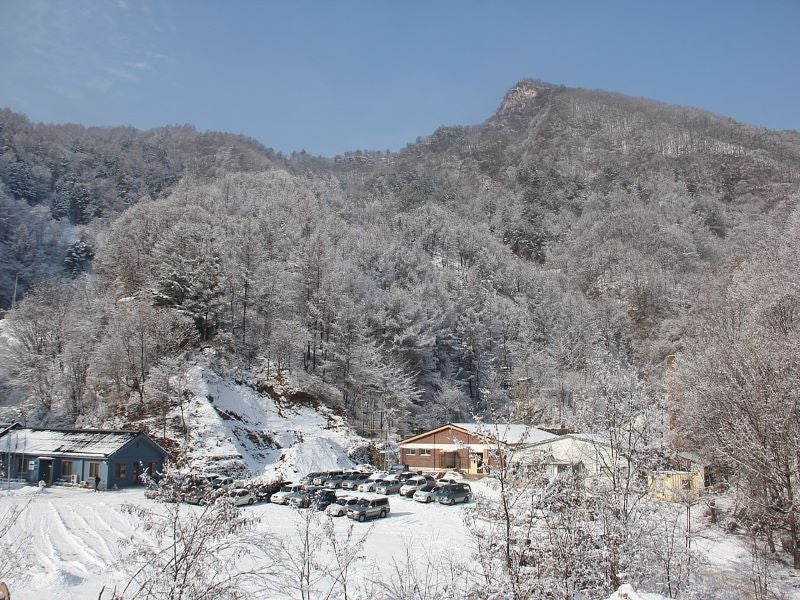The Sandgong tungsten project, also known as the Almonty Korea tungsten project, is a historical mining site in South Korea that is currently being developed by Canada-based Almonty Industries through its wholly-owned subsidiary, Woulfe Mining Corp.
Oriental Minerals acquired 23 mining rights in the Sandgong area from Se Woo Mining in January 2007. Oriental Minerals later changed its name to Woulfe Mining in February 2010.
Almonty became the owner of the historic Sangdong mine, one of the world’s biggest tungsten mines, through its acquisition of Woulfe Mining in September 2015.
An updated feasibility study for the project was completed in January 2016 followed by an updated technical report on the mineral resources and reserves in August 2016. The engineering, procurement, and construction (EPC) contract was signed in December 2017 while the pre-construction activities were initiated in the following year.
A binding commitment letter was received from the IPEX Bank for £58.23m for the development of the project in January 2020. Almonty also completed a non-brokered private placement of secured convertible bonds worth £2.9m in July 2020.
Project location and geology
The Sangdong tungsten project is located approximately 187km south-east of the capital city of Seoul, in the Yongweol County of Gangwon Province in the Republic of Korea.
The Sangdong property is comprised of 12 mining rights spanning over approximately 3,173ha. The nearest settlements are the village of Sangdong that lies approximately 500m away from the mine site and the town of Taebaek which is located approximately 30km away from the project site.
Sangdong is a tungsten skarn deposit with mineralisation hosted in hydrothermally altered calcareous sediments and limestone lithologies. The mine is located on the southern limb of the regional Baegunsan syncline. The basement area is of Precambrian age schistose lithologies that outcrop to the south of the mine.
Mineralisation and reserves
The tungsten mineralization at the Sandgong mine is contained within four tabular, bedding-conformable skarn horizons overlying the Myobong Slate Formation. The mineralized zone has an east-west strike extension and dips to the north for a maximum strike and dip extensions of 1.3km and 1.5km, respectively.
The Sangdong mine is estimated to hold approximately 7.9Mt of probable ore reserves grading 0.5% tungsten trioxide (WO3).
Mining operations at Sangdong
The Sangdong tungsten project will be an underground mining operation utilising two types of stope mining methods. The mechanised inclined panel mining (MIP) method will be employed in ore zone areas with thickness less than 3m, while the cut-and-fill (CAF) method will be employed for areas with thickness greater than 3m.
The MIP mining will be carried out with the use of single-arm electric/hydraulic jumbos with 3m rods, while drilling operations in the CAF zones will be carried out with two arm electric-hydraulic jumbos with 3.6m rods.
The initial mine production rate will be 450,000 tonnes of ore per annum (tpa) which will be subsequently increased to 640,000 (tpa). Approximately 40% of the ore feed will be obtained from MIP mining and the remaining 60% from CAF mining.
Ore processing for the Almonty Korea tungsten project
The mineral treatment process for the Sangdong ore involves primary, secondary and tertiary crushing, two-stage grinding, flotation, thickening and filtration for the production of final tungsten concentrate at a rate of 5,519tpa.
The crushed ore will be ground in a 3.3m-diameter and 4.9m-long rod mill which discharges to a cyclone cluster. A ball mill will regrind the cyclones underflow while the cyclone overflow will be passed on to the sulphide flotation circuit conditioning tank prior to entering the flotation circuits.
The flotation process involves the sulphide flotation and the tungsten flotation circuits. The tungsten concentrate obtained from the two primary flotation stages will be further upgraded in a modified Petrov process to reach the marketable grade of 65%. The process consists of high-density heated conditioning at 90°C for 90 minutes.
The heated primary tungsten concentrate is then thickened in an 8m-diameter thickener. A 1.2m-diameter and 1.2m-long drum filter will be used to filter and dry the tungsten final concentrate. A Holoflite rotary drier will be used to dry the filter cake down to 3% of moisture content which will be stored in a 50t capacity silo for packaging and shipping.
Infrastructure facilities
The mine site is accessible from the village of Sangdong via National Road No. 31. The power required for the project will be supplied via an overhead line connecting two main substations in the vicinity of the processing plant. One substation will supply power to the mine and non-processing plant facilities while the other will be dedicated to the processing plant.
The mine will require approximately 40,000m3 of potable water a year which will be supplied through an existing 2km-long pipeline connection to the Sangdong town water supply.
Contractors involved with the Sandgong tungsten project
POSCO Engineering & Construction was awarded an engineering, procurement, and construction (EPC) contract for the Sangdong mine development in December 2017.
Miso Industry was awarded the site clearance contract in April 2018 while the contract to develop the underground galleries for the project was awarded to Gangwon Mining in the same month.
Metso Corporation provided the crushing and grinding units for the Sangdong processing plant that were completed in May 2020.
Upgrade Mining Solutions provided the design for the Sangdong mine backfill.





